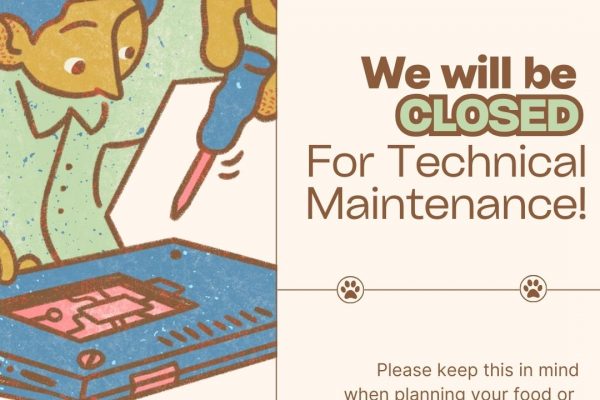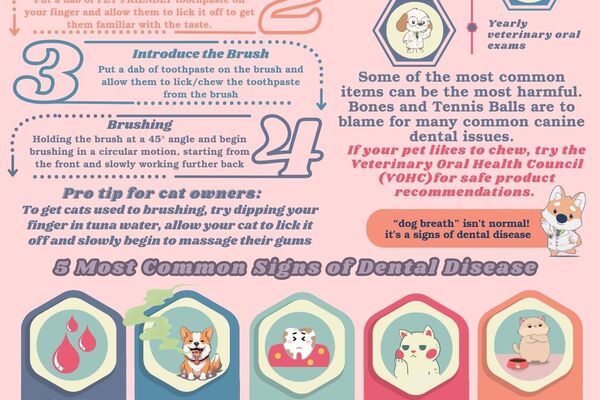Puppies
When you first acquire your new puppy, he or she should visit the veterinarian for a full physical exam and assessment.
Most puppies will receive 3 sets of vaccines. It is very important that these vaccines are given within a certain time-frame to ensure that your puppy is fully protected against the common diseases of dogs, including parvovirus and distemper. Depending on your dog’s lifestyle and exposure to other dogs and wildlife, vaccines against lyme disease, canine cough or leptospirosis may be recommended.
Also, puppies should be dewormed to rid them of common parasites, like roundworms and hookworms. Puppies acquire these worms from their mothers at a young age; some parasites can even be acquired before they are born. It is also important to take a stool sample to check for other less common parasites, so they can be treated if necessary. Another reason to test stool samples is that many of these parasites can be passed to people, causing a variety of illnesses.
Crate-training and house-training should start after 6 weeks of age. Consistency is very important to helping your puppy learn quickly. Please ask your veterinarian for helpful tips if you are having difficulty with crate or house-training. The crate should be just large enough for your puppy to stand up and turn around comfortably. It should not be so large that your puppy can go to the washroom at one end, and wander to the other end to sleep. This may mean that as your puppy grows you may need to upgrade the size of your crate. It is also recommended that all puppies attend puppy classes. This allows new owners to gain information on training; but even if you are experienced with training, it allows your puppy to socialize and learn to interact appropriately with other dogs.
Trimming your dog’s nails should become a part of his or her routine early in life. Please see the section on Health Care at Home for information on nail trimming.
At 6 months of age, it is strongly recommended that your dog be neutered if he is male, or spayed if she is female. This not only helps curb unwanted behaviours, like urine marking, aggression, but also prevents bleeding while females are in heat, and unwanted pregnancies. In females, spaying also greatly reduces the risk of mammary cancer later in life, and prevents ovarian cancers and serious uterine infections, known as pyometras. In males, neutering reduces the risks of many prostate diseases. This is also a great time to microchip your pet.
Please call or drop by to ask about our puppy packages, which include vaccines, deworming, stool testing and a spay or neuter.
Dogs
Your adult dog should be seen at least once a year for an annual exam and any required vaccines. An annual exam allows your veterinarian to assess the health of your dog’s eyes, ears, teeth and internal organs. Annual stool checks are recommended to monitor for parasites. This visit also gives you a chance to discuss any concerns about behaviour or weight issues, and to follow-up with any previous health concerns.
Seniors
Dogs over the age of 10 are considered senior patients, and large breed dogs are considered a senior patient at an earlier age. We recommend senior patients have annual blood and urine screenings to identify diseases early, before there are any signs of illness, so we can begin appropriate treatments. Senior patients, along with dogs of any age with illnesses, should have exams and labwork every 6 months to monitor for any changes in their condition. Some of the common diseases of senior dogs that your veterinarian will be looking for include dental disease, hyporthyroidism and liver disease.

Closed for Technical Maintenance
February 12, 2026
We will be Closed for Technical Maintenance Wednesday February 18th from 12:00pm- 2:00pm for technical maintenance.
Please be sure to keep this in mind when planning to pick up food or medication.
If you have an emergency please contact the Veterinary Emergency Hospital (VEC) at 416-920-2002 or the Central Toronto Veterinary Referral Clinic (CTVRC) at 416-784-4444
We are very sorry for any inconvenience this may cause.
Read More

Dental Months Are Back!
February 10, 2026
Throughout all of February and March we are offering 20% off ALL dental cleanings and surgeries, as well as a complimentary oral assessment for pets who have been in for their annual wellness exam within the past 12 months.
Read More

Family Day 2026
February 10, 2026
Happy Family Day!
We just wanted to send out a friendly reminder that we will be closed Monday February 16th so we can spend a little exra time with our furry family members!
Regular clinic hours will resume on Tuesday February 17th.
If you have an emergency while we are closed, please contact the Veterinary Emergency Hospital at 416-920-2002 or the Central Toronto Veterinary Referral Clinic at 416-784-4444
Read More

Holiday Hazards
December 5, 2025
The holidays are fast approaching and bringing with them a seasonal set of safety hazards for our furry family members. Have a look at some of the dangers this time of year has to offer and a few suggestions to help you avoid a trip to the emergency clinic!
Read More

Thanksgiving Hours
October 7, 2025
Thanksgiving is just around the corner and we will be CLOSED Monday October 13th! We ask that you be sure to pick up or order your foods and medications in advance.
Read More

